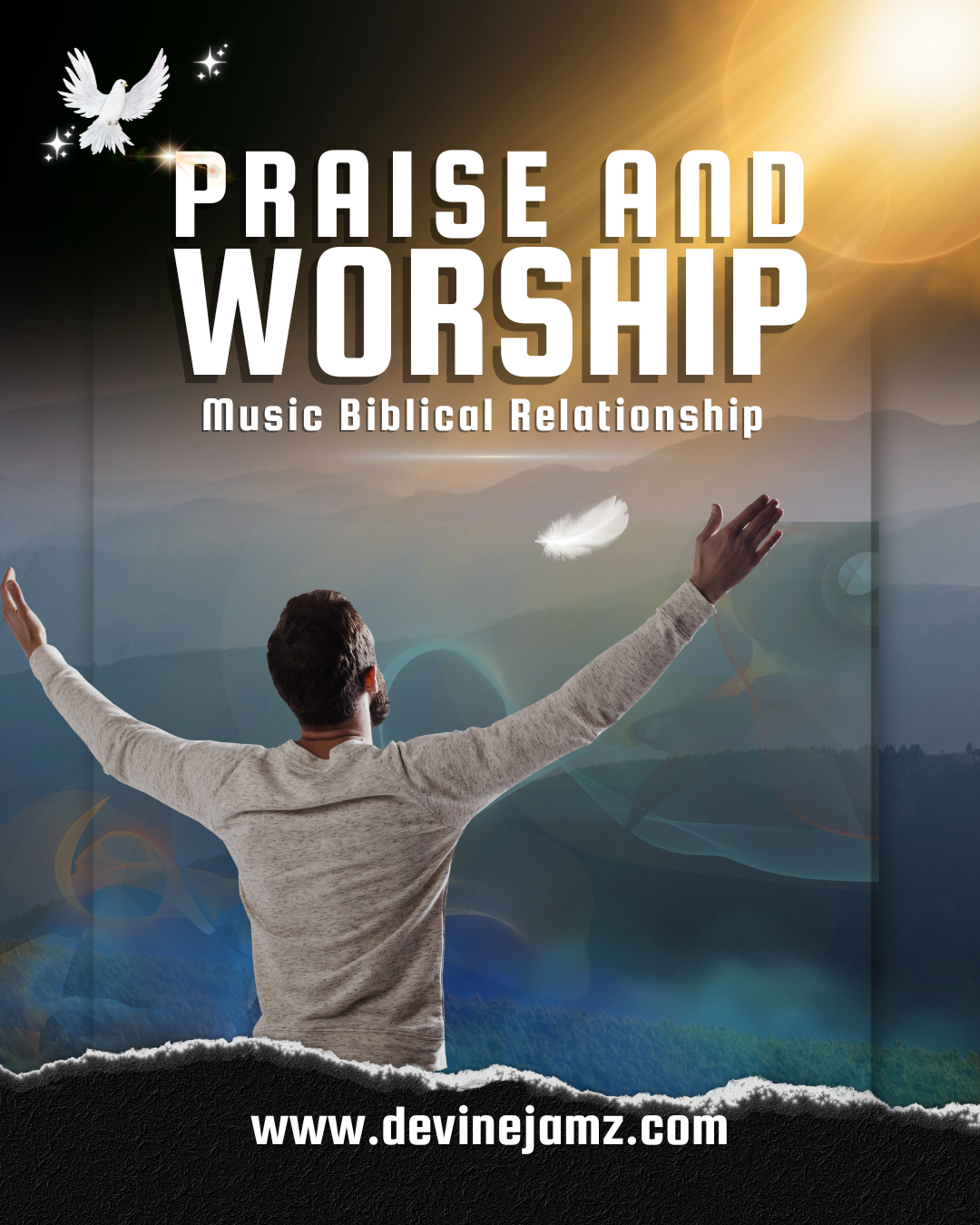Is Music Really the Last Form of Worship?
So there I was, hanging out in a live group chat. It wasn’t my first time—maybe the third or so—but something that got said that day just hit different. The host, who I respected and had listened to before, made a bold claim: “Music is the very last act of worshiping God.” Now, as someone deeply involved in faith-based music promotion, I have to admit—that statement didn’t sit right with me. I tried to brush it off at first, thinking I’d circle back to it when I had time. But when I heard the same thing again in another live chat, I couldn’t ignore it anymore. I had to dig deeper. I’ve always felt at home in those live chats, actively supporting the host and encouraging others with kind messages. But that particular statement kept echoing in my mind. I wanted to know the truth about the music biblical relationship, not just for my own understanding, but to be able to respond with wisdom if the topic came up again.
In fact, it really sparked my curiosity—and my spirit—especially because the host was playing soft, soothing instrumental music in the background the whole time while sharing and ministering God’s word. I couldn’t help but think, “Wait a second… isn’t that music already contributing to the worship experience?” It seemed like a contradiction. Maybe the host didn’t even realize the significance of the music they were using while claiming music comes last in worship. I’d never really stopped to ask myself what the Bible actually says about music—beyond the usual verses quoted by Christian music ministers. At first, I figured I’d look into it later, since it didn’t feel urgent. But hearing that same viewpoint again in another live session pushed me to finally dig in and do the research myself—before just accepting what I was hearing at face value.
Digging Into Scripture: The Search Begins
Curiosity got the better of me, and I went down the rabbit hole—research mode fully activated. What I found surprised me. Contrary to the host’s view, the Bible actually paints a very rich and multi-layered picture of music’s role in our spiritual lives. The music biblical relationship is anything but last in line. In fact, it’s woven through the entire fabric of scripture, from Genesis to Revelation. It’s used to worship, to teach, to unify, and to comfort. Music isn't some afterthought—it’s a powerful tool that God uses to move hearts and change lives. And the more I read, the more I realized how many ways music plays a central role in our relationship with God. So, I want to share with you what I learned—because I believe music deserves a higher place in our conversations about worship and spiritual expression.
Worship and Reverence: The Heart of It All
If we’re talking about priorities, let’s start at the top. Music, at its highest order, is used in the Bible to glorify God and express deep reverence. It’s not just a feel-good moment during service—it’s sacred. Take a look at Psalms. That whole book is essentially a songbook of praise. Scripture like 1 Chronicles 16:23 says, “Sing to the Lord, all the earth; proclaim his salvation day after day.” That’s not a suggestion—it’s a command to praise. So, saying music is the “last” act of worship doesn’t really track when God Himself invites us to lead with song and praise. The music biblical relationship begins with the foundation of glorifying the Creator. It’s both intimate and collective, reaching out from the heart of one person to connect with heaven itself.
Spiritual Connection and the Presence of God
The Deep Music Biblical Relationship in Worship Settings: Another powerful aspect of music in scripture is how it ushers in God’s presence. Remember the story of David and Saul? David played the harp, and the evil spirit tormenting Saul would leave (1 Samuel 16:23). That’s more than just a soothing melody. That’s spiritual warfare. That’s healing. That’s divine connection. Music has a unique way of making space for the Holy Spirit to move. I’ve felt it in worship services and even in my car listening to the right song at the right moment. When you tune into music that honors God, you often find your heart softening, your spirit lifting, and your focus shifting. It’s a spiritual portal of sorts—a way to realign with heaven and feel God’s nearness. The music biblical relationship isn’t just theology—it’s tangible, real, and deeply felt.
Teaching Truths Through Song
Let’s not forget how music was used in the Bible to teach important truths. Both in the Old and New Testaments, songs were a way to remind people of God’s promises and laws. Think about Colossians 3:16, which encourages believers to “teach and admonish one another with all wisdom through psalms, hymns, and spiritual songs.” There’s something about melody and rhythm that helps things stick. It’s why we still remember childhood songs decades later. In a time when not everyone could read, music helped the faithful carry God’s Word in their hearts and minds. Even now, I’ve seen how powerful music can be in shaping belief and reinforcing biblical truth in subtle yet impactful ways. This part of the music biblical relationship is practical and powerful.
A Unifying Force in Fellowship
Evangelism, Testimony, and Healing: Last but not least, music is a powerful tool for outreach and personal healing. The Psalms speak of declaring God’s glory among the nations—music was always meant to reach beyond the temple walls. Today, Christian artists use music to bridge the gap between the sacred and secular, sharing messages of hope and faith in ways that speak to the heart. And let’s be real—some songs have a way of hitting you so deeply that you feel seen, heard, and comforted. Paul and Silas weren’t just singing to pass time in prison—they were lifting themselves up and staying spiritually grounded. Music infused with God’s truth has the power to heal wounds, renew strength, and restore joy. It’s an intimate part of the music biblical relationship that touches every listener uniquely.
So, to wrap it up—music isn’t the last act of worship. It’s a leading force, a spiritual tool, a memory anchor, and a unifier. The more we understand the music biblical relationship, the more we realize just how central it is to our faith journey. Whether you’re singing in church, humming a tune while doing chores, or crying through a worship ballad—know that God hears you. Music matters. It always has.
Visit Devine Jamz Gospel Network to explore more about music’s role in faith and inspiration.
This post contains affiliate links, meaning we may earn a commission if you make a purchase through our links, at no extra cost to you. Your contribution helps sustain our blogging and supports our efforts to provide informative and valuable information. Even though Devine Jamz Gospel Network receives compensation for our posts or advertisements, we always give our honest opinions, findings, beliefs, or experiences on those topics or products. The views and opinions expressed on this website are purely of Devine Jamz Gospel Network. Any product claim, statistic, quote or other representation about a product or service should be verified with the manufacturer, provider or party in question.
Related Posts:
 Reaching New Audiences Through Radio Airplay With ‘Pray For Me’ By Mark Anvil
Reaching New Audiences Through Radio Airplay With ‘Pray For Me’ By Mark Anvil
 Psalmist SylMac Uplifts Souls with Her New Release “The Lord’s Prayer”
Psalmist SylMac Uplifts Souls with Her New Release “The Lord’s Prayer”
 Why Recording Artists Need a Website for Control, Exposure, and Revenue
Why Recording Artists Need a Website for Control, Exposure, and Revenue
 Klipht0n’s New Single ‘I Shall Leap’ is a Declaration of Faith
Klipht0n’s New Single ‘I Shall Leap’ is a Declaration of Faith
 10 Step Marketing Guide For Musicians
10 Step Marketing Guide For Musicians
 Psalmist Raine & the Refresh Team
Psalmist Raine & the Refresh Team
 Devine Jamz Podcast Interview Gives Value To Artist’s Music
Devine Jamz Podcast Interview Gives Value To Artist’s Music
 How Christian Gospel Music Hits Different Than Other Genres
How Christian Gospel Music Hits Different Than Other Genres




